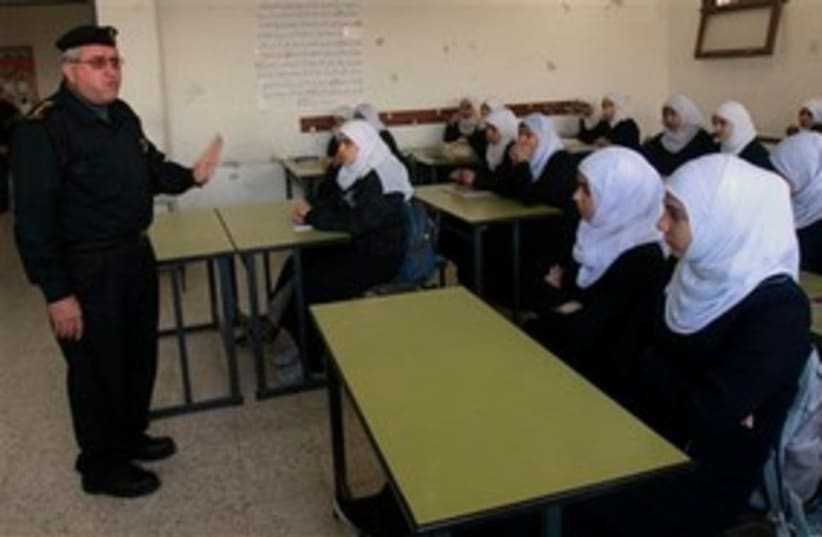RELATED:PA has been ‘renaming’ Jewish sites in textbooks'Anti-Semitic material being taught in UK Islamic schools'The study found that the Egyptian school curriculum did not show support for democratic values or respect for the “other,” and did not advocate principles of democracy. This is despite the fact that the school textbooks in Egypt promote tolerance for Copts and urge religious moderation, the report found.The study also faulted the Egyptian school system for denying the existence of the State of Israel, containing anti-Jewish material and promoting “pro-war” narratives.In regard to Tunisia, the study said the North African country – which is currently in the throes of a revolution that saw the ouster of President Zine El Abidine Ben Ali on December 15 after 23 years in power – has much more progressive views toward the other than most Arab countries and Iran. It also said the country had a near-total separation of church and state and that Islam was not a dominant force in the country’s school system.According to the report, the Tunisian school system is much more progressive and open to the peace process and the existence of the State of Israel, which it includes in official school textbooks. Its textbooks also make mention of the Holocaust, the study noted.The report quoted from a 9th-grade Tunisian textbook, which states that “tolerance is a fundamental principle in the Koran,” and asks students, “So how is it that some people have used Allah’s book as an instrument of extremism and narrow-mindedness?”IMPACT-SE CEO Shelley Elkayam said upon the release of the report that “the move toward moderation in Tunisia reflects a pedagogic approach geared to preparing the child for living in a global village in a culture of tolerance.”Elkayam added that “the challenge facing Tunisian liberalism is to protect the buds that have sprouted among the thorns. The difference between Egypt, Iran and Tunisia is deep and profound. Not all revolutions are the same.”
Tunisia, Israel are Mideast’s ‘top teachers of tolerance’
Study finds that Egyptian curricula do not show support for democratic values, deny existence of Israel and contain anti-Jewish material.

RELATED:PA has been ‘renaming’ Jewish sites in textbooks'Anti-Semitic material being taught in UK Islamic schools'The study found that the Egyptian school curriculum did not show support for democratic values or respect for the “other,” and did not advocate principles of democracy. This is despite the fact that the school textbooks in Egypt promote tolerance for Copts and urge religious moderation, the report found.The study also faulted the Egyptian school system for denying the existence of the State of Israel, containing anti-Jewish material and promoting “pro-war” narratives.In regard to Tunisia, the study said the North African country – which is currently in the throes of a revolution that saw the ouster of President Zine El Abidine Ben Ali on December 15 after 23 years in power – has much more progressive views toward the other than most Arab countries and Iran. It also said the country had a near-total separation of church and state and that Islam was not a dominant force in the country’s school system.According to the report, the Tunisian school system is much more progressive and open to the peace process and the existence of the State of Israel, which it includes in official school textbooks. Its textbooks also make mention of the Holocaust, the study noted.The report quoted from a 9th-grade Tunisian textbook, which states that “tolerance is a fundamental principle in the Koran,” and asks students, “So how is it that some people have used Allah’s book as an instrument of extremism and narrow-mindedness?”IMPACT-SE CEO Shelley Elkayam said upon the release of the report that “the move toward moderation in Tunisia reflects a pedagogic approach geared to preparing the child for living in a global village in a culture of tolerance.”Elkayam added that “the challenge facing Tunisian liberalism is to protect the buds that have sprouted among the thorns. The difference between Egypt, Iran and Tunisia is deep and profound. Not all revolutions are the same.”